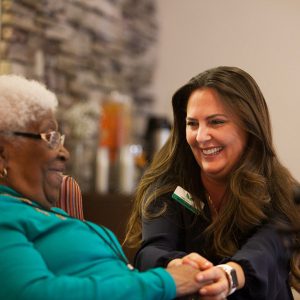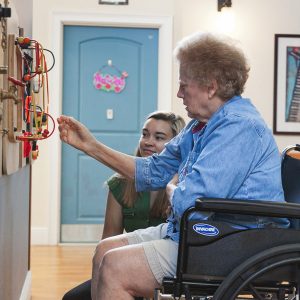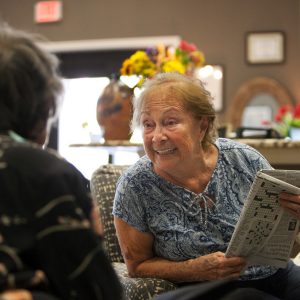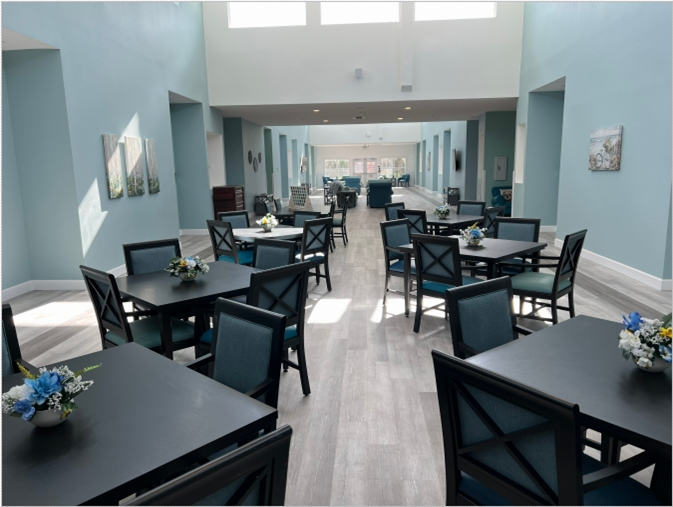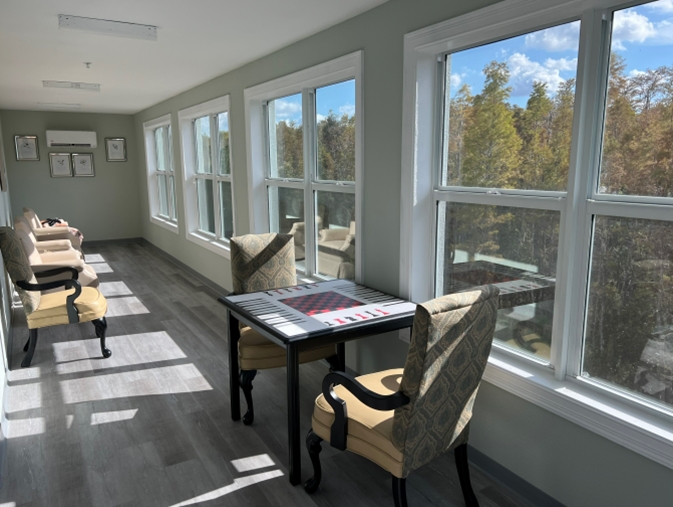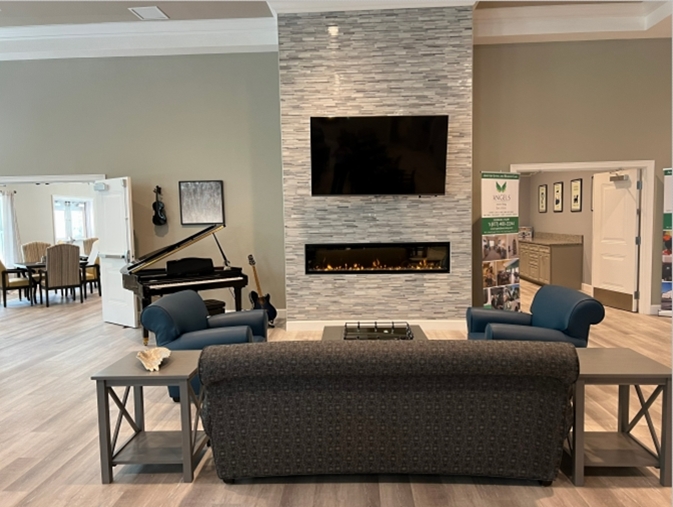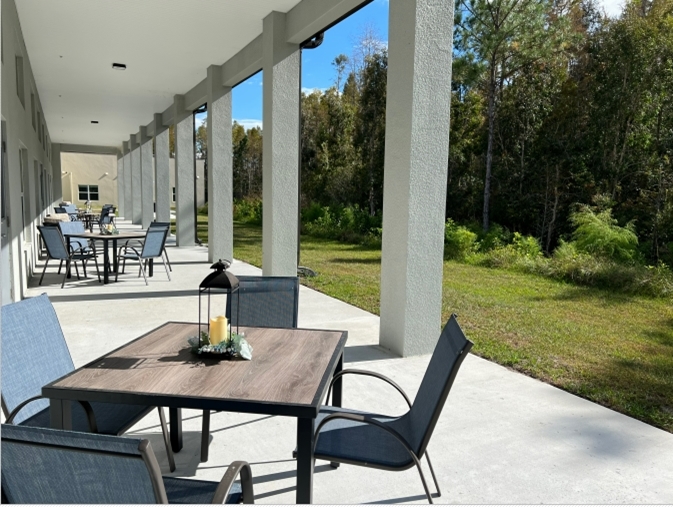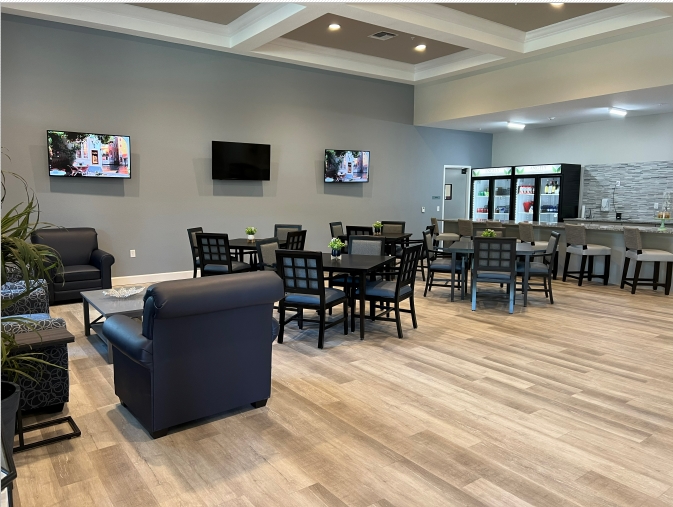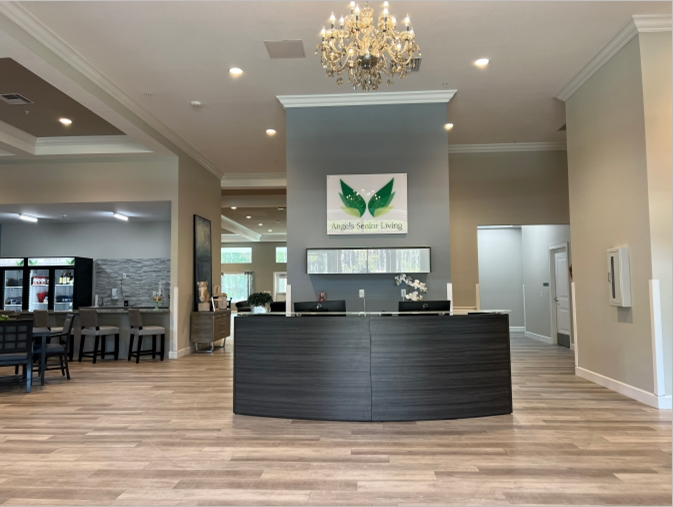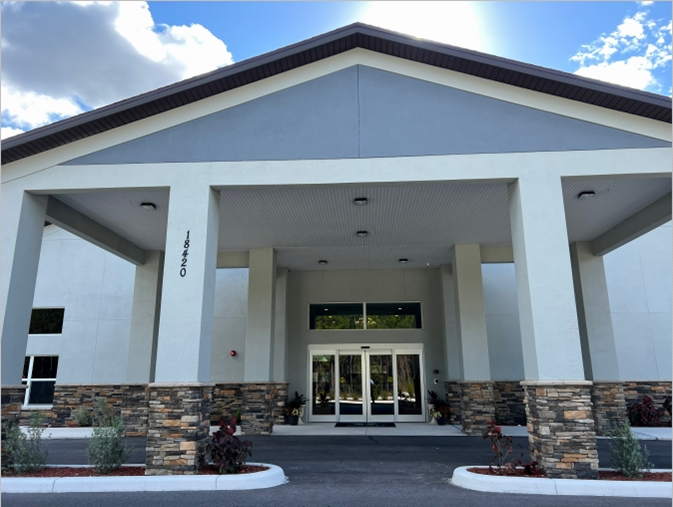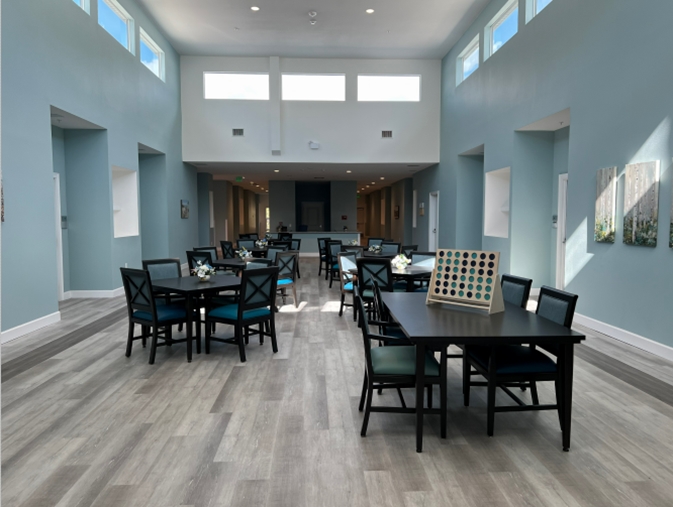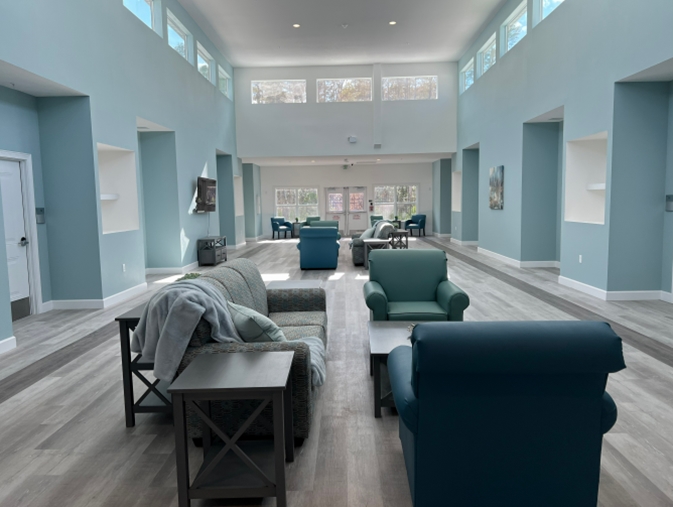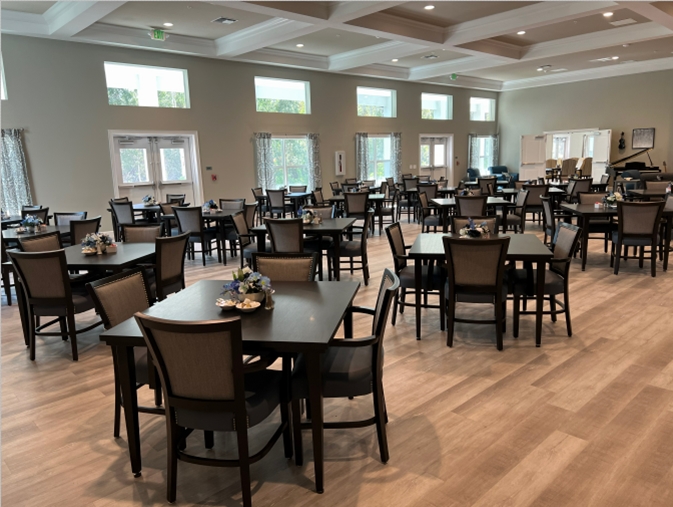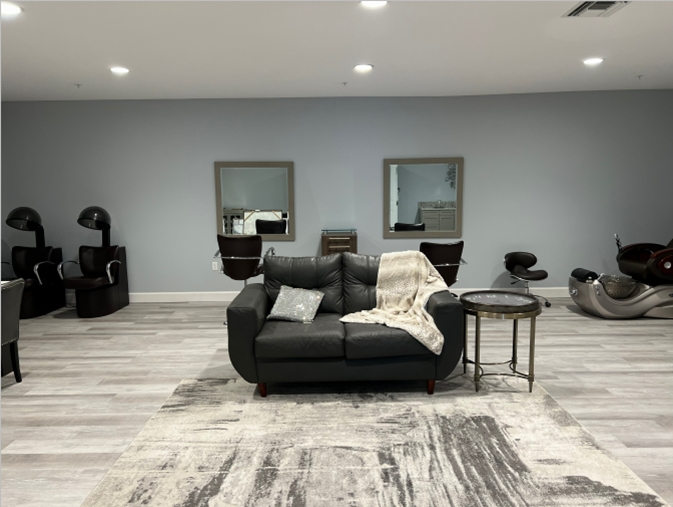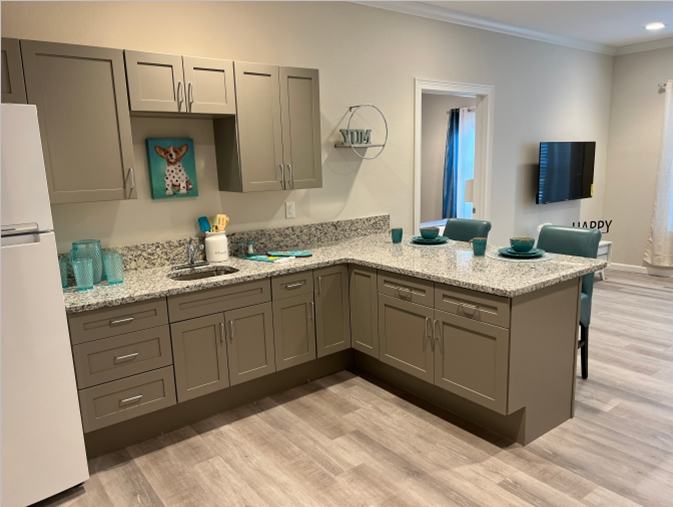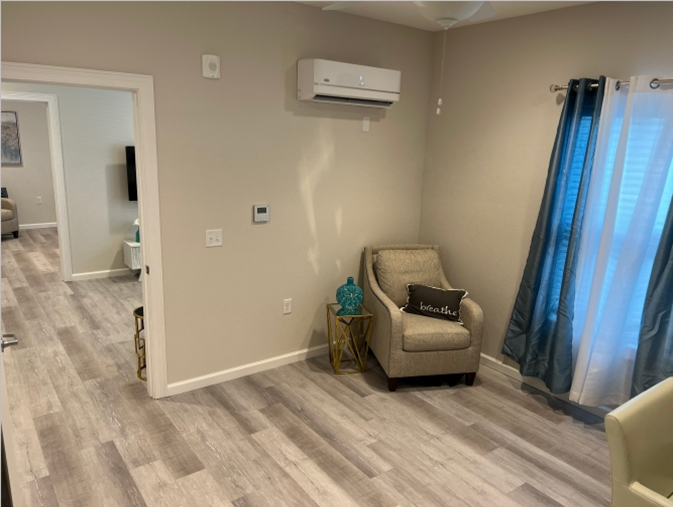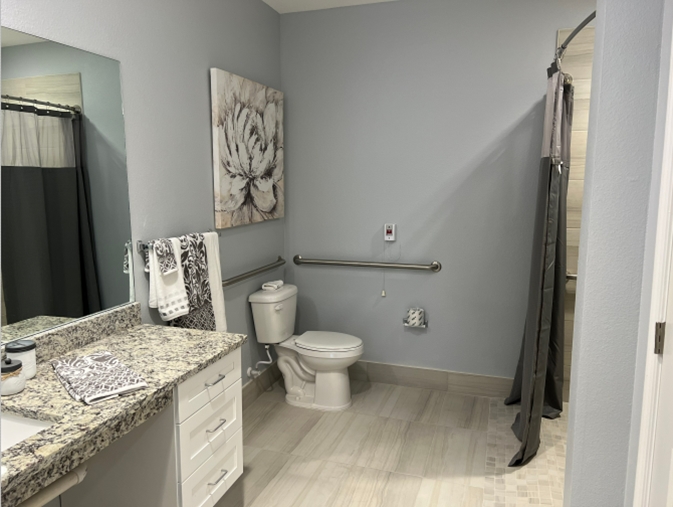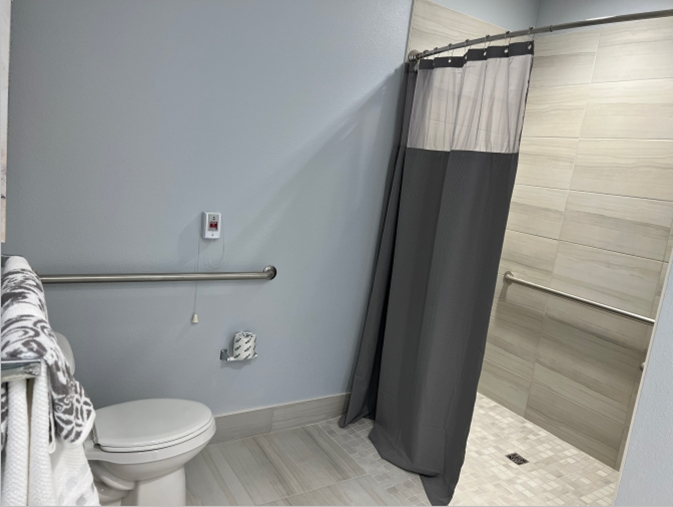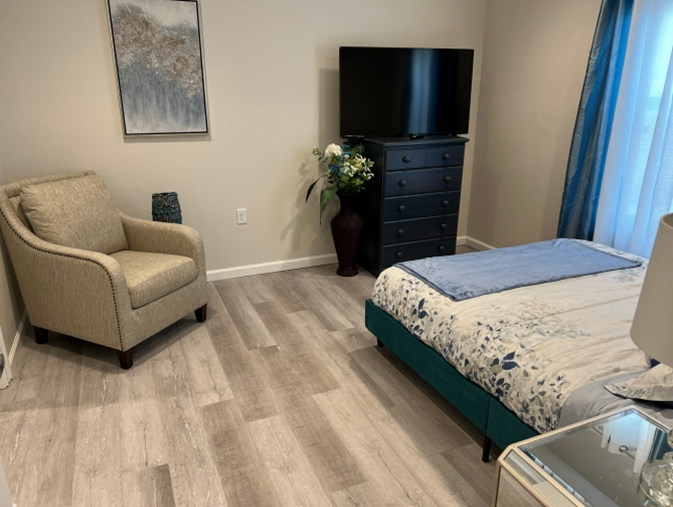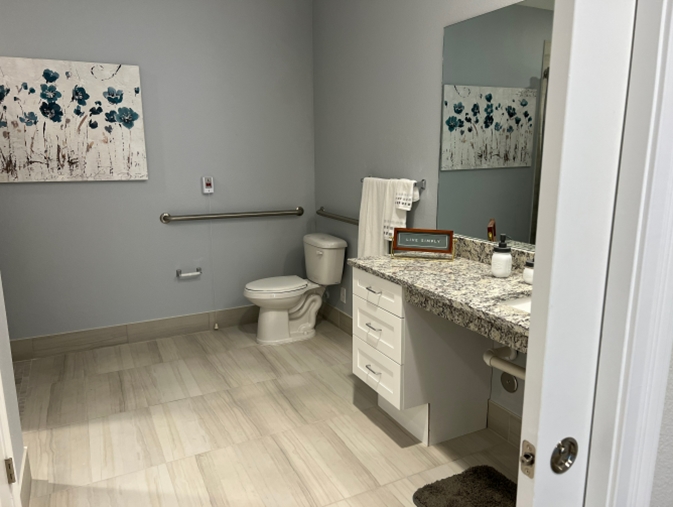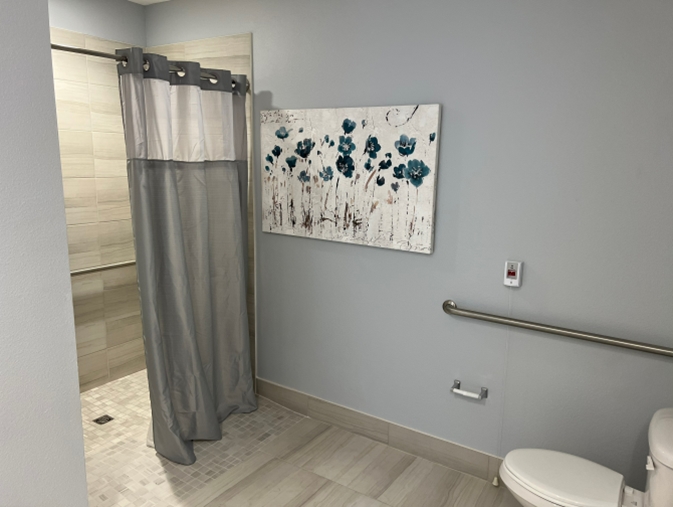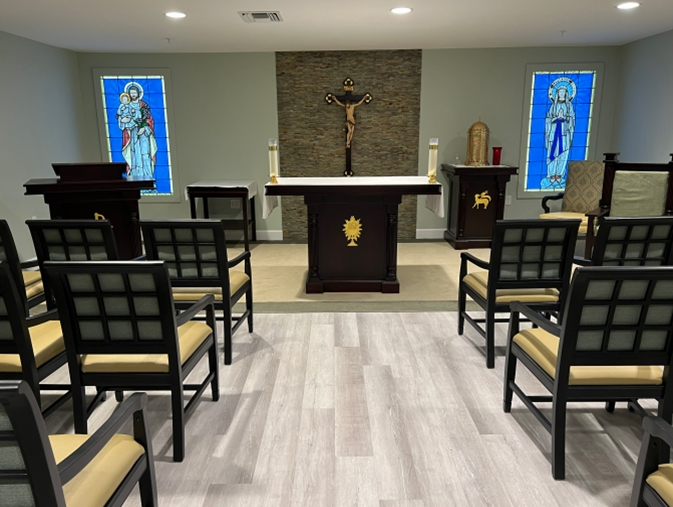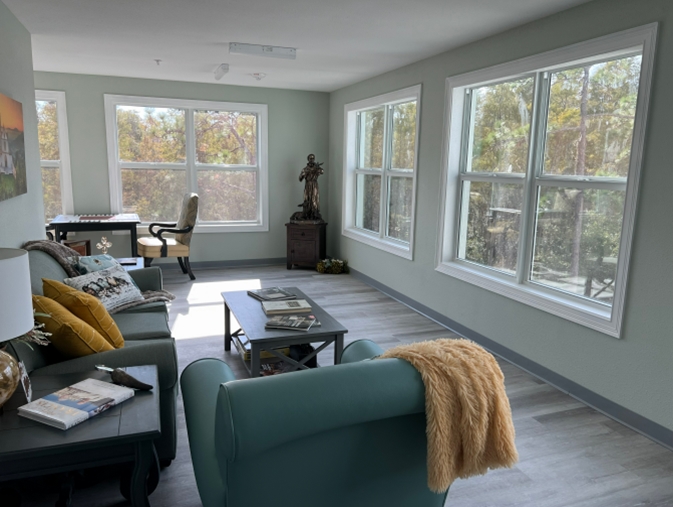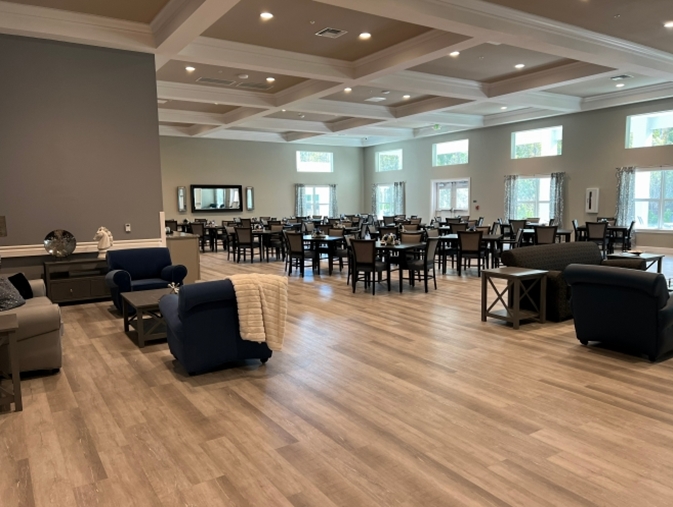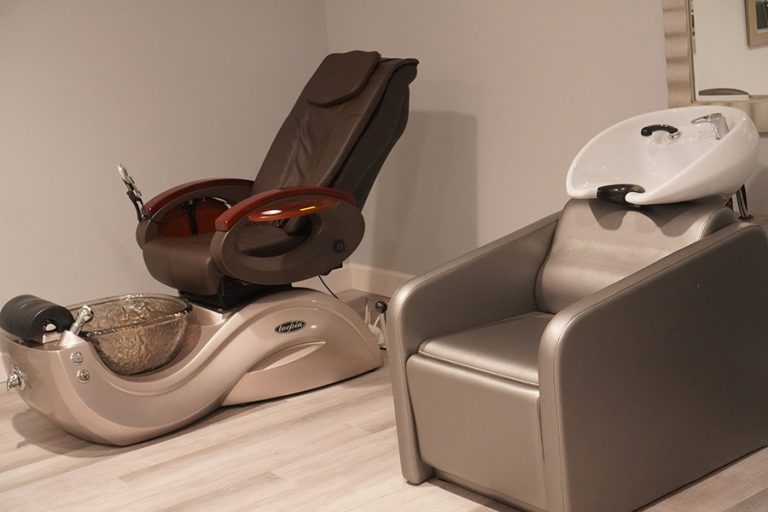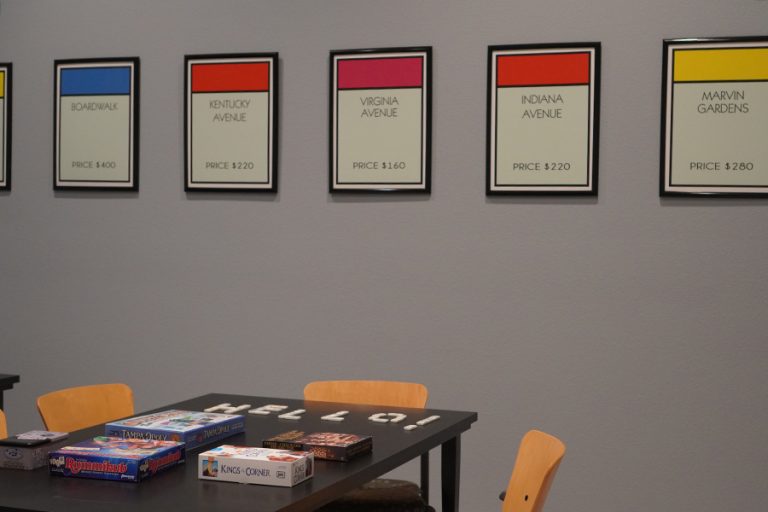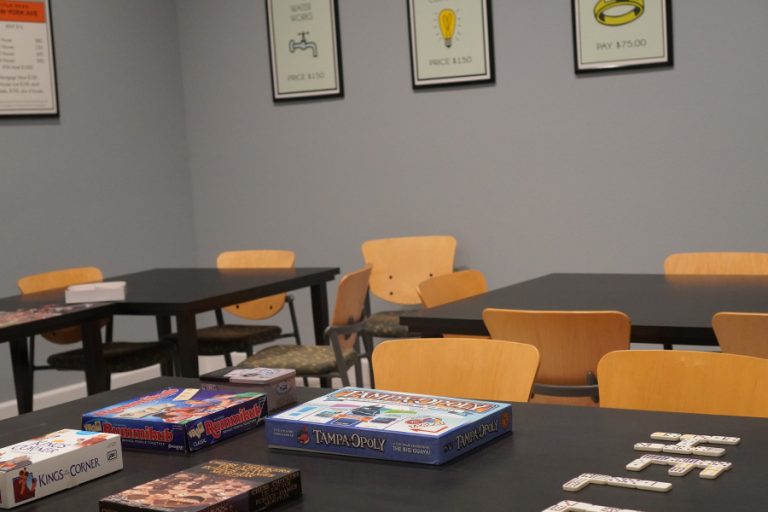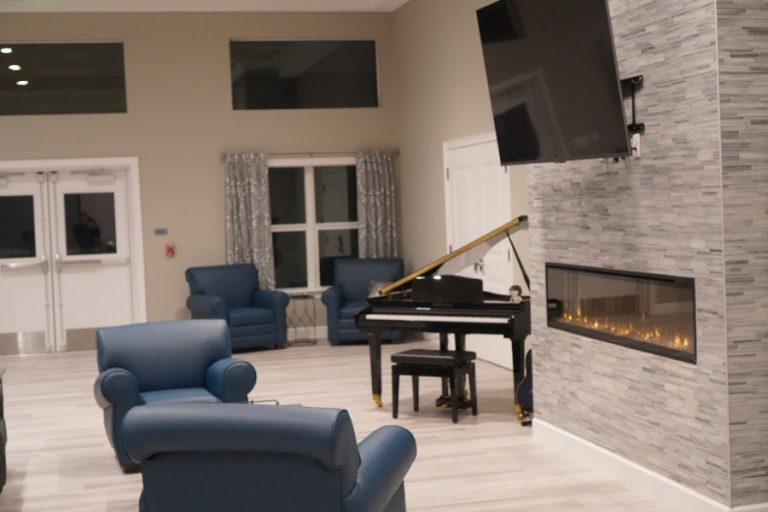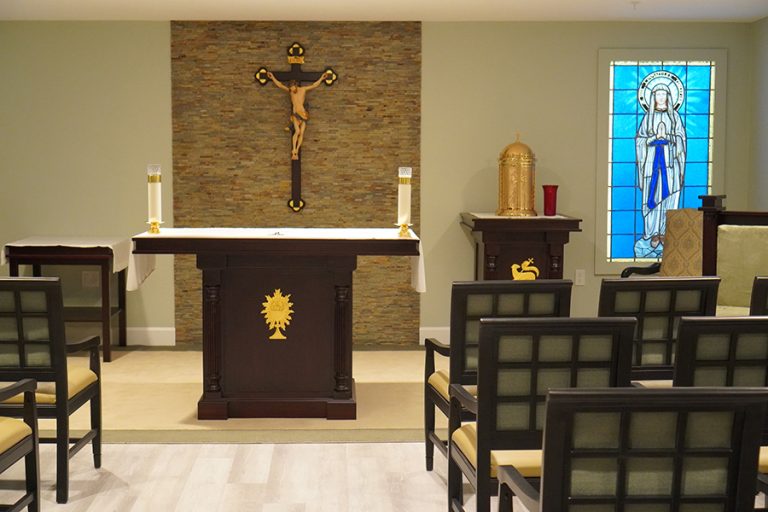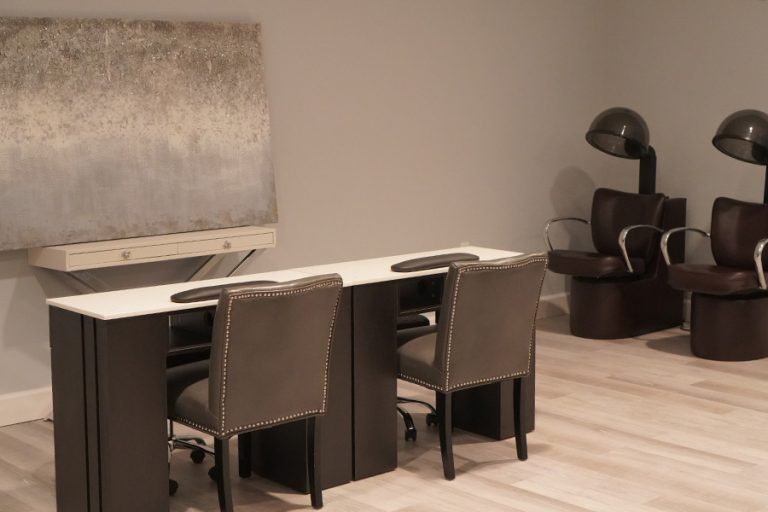We’re thrilled to announce the newest location At Angels Senior Living at The Reserves of Idlewild. This assisted living community is located in Lutz, Florida, near peaceful, tranquil conservation land. It offers residents and visitors the warmth of a mountain lodge with the sophistication of a grand hotel.
This location also offers a memory care unit. Memory care provides for seniors who need treatment and attention due to memory loss usually brought on by Alzheimer’s, dementia, or another cognitive disease. Our memory care staff receive specialized training to work in our unit and are ready to serve you.
The Reserves of Idlewild features 24 secured memory care apartments, eight extended care apartments, and 63 apartments for assisted living and independent residents. The close proximity to Land O’ Lakes, Tampa, and Wesley Chapel provide our residents access to the finest hospitals, medical professionals, shopping, and cultural entertainment in the area. We are also a short distance from the University of South Florida, Moffitt Cancer Center, and the Byrd Alzheimer’s Institute.

